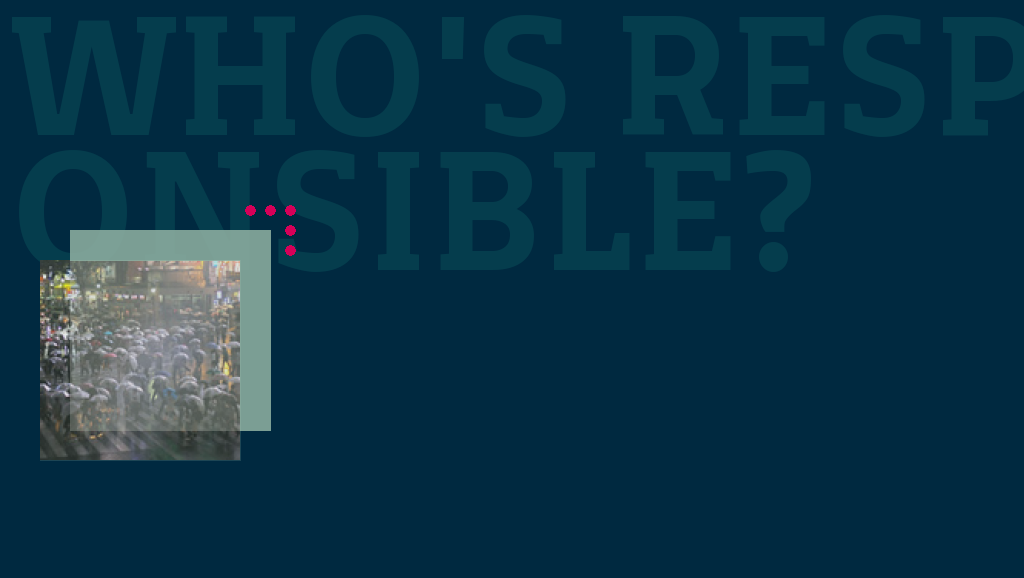Cristina Grasseni and The Bassetti Foundation at EASA
The 2012 European Association of Social Anthropologists conference (EASA) takes place at Université Paris Nanterre in July of this year, and long time collaborator Cristina Grasseni will participate on a panel on behalf of the Bassetti Foundation, as part of an event entitled “Who’s Responsible?”.
The panel has been organized by Karolina Follis of the University of Lancaster in the UK and Thomas Strong of the National University of Ireland in Maynooth, and the event takes the form of a workshop within which 10 papers will be presented.
The workshop invites ethnographic reflections on the diverse range of meanings and uses of the term ‘responsibility’, a diversity that is reflected in the broad topic areas addressed by each speaker. An interesting group address (among other things) legal responsibility and accountability in various different circumstances, tensions between the concepts of sustainability and responsibility, health, employment and migration.
The full list of papers is available here along with a short abstract. Grasseni will not present a paper herself but will act as discussant alongside the panel organizers.
The following piece is taken from notes circulated by the panel organizers and outlines their framework and aims.
——
ʻResponsibilityʼ is a keyword in contemporary politics and culture. It is frequently invoked in many and diverse discursive domains: in courts of law when blame for harms is adjudicated, in the marketing campaigns of corporations seeking to burnish their public reputations, in political forums urging people to live up to their duties as citizens, in philosophical debates about freedom and autonomy. And the discourse of responsibility touches on a number of resonant themes in anthropology today: analysis of cause-and- effect within complexifying webs of relations, ideas about agency and structure, interrogations of risk and ʻrisk society,ʼ morality and ethics as ethnographic subjects. What does the salience of the concept of responsibility tell us about contemporary cultural concerns and forms of government? What does it tell us about contemporary anthropology?
Responsibility has two conventional senses: the ʻcapability of fulfilling an obligation or dutyʼ and the ʻstate or fact of being accountable’. The problem of responsibility in both senses — with respect to things that need to or should be done (obligation) and in terms of assessing what has already occurred (accountability) — profoundly shapes states of anxiety, uncertainty, and disquiet through the ethical ordering of social action in time. Indeed, senses of responsibility frequently frame the specific circumstances through which uncertainty and disquiet are elicited and experienced. To establish responsibility is to restore, promise, or create order (or an illusion thereof). It is to settle accounts for the past, organize the present, or anticipate a vision of the future. As a pervasive aspect of contemporary life, responsibility evokes both the pedestrian and the profound: It may be a mundane aspect of bureaucracies (when rules and regulations determine the assignment of tasks within an institution) or an act of justice (when judges and juries apportion guilt
and innocence). It may also be a political game.
Crossing between ostensibly conservative or progressive ideologies, invocations of ʻresponsibilityʼ expose commonly held ways of thinking about social problems. For example, while ʻpersonal responsibilityʼ is a touchstone of conservative political ideologies, often used in arguments about the retraction of state services (welfare, national healthcare, free education), ʻpersonal responsibilityʼ may be seen as a liberating ethos by devotees of self-help. Both discourses articulate the virtues of a certain style of individualism. Alternatively, styles of reasoning eliciting ʻcollective responsibilityʼ may support commitments to public goods such as sound environmental policies, or may apportion blame to whole countries or religions in the context of the wrongdoing of particular individuals. To understand why ʻresponsibilityʼ has become such a salient term in contemporary thoughtstyles, this workshop invites ethnographic reflections on its diverse range of meanings and uses today.
“Personal responsibility” is an ideological construct and a buzzword of the self-help discourse. Accusations of irresponsibility are an element of the conservative political
repertoire, levied against such groups and communities as working class parents and youth, teenage mothers, welfare recipients and people with addictions and other health and mental health problems. The implication is that if only they took responsibility for their actions they would significantly alleviate their own hardship.
The Left talks instead of irresponsible corporations, bankers and other profit-makers, who, focused on their bottom line, disregard the various negative social, economic, and environmental consequences of their activities.
The world of business on the other hand deploys the concept of Corporate Social Responsibility (CSR), sometimes as a fig leaf masking profoundly harmful effects of commercial activities, sometimes as a shield against governmental regulation, and sometimes as a way to promote kinder, gentler business practices which may benefit local communities, advance the fair trade cause or reduce environmental impact.
It seems that the question “whoʼs responsible for this?” permeates the current debates around the economic crisis, the calamitous outcomes of foreign military interventions, environmental disasters, and the various social problems of contemporary societies, related and unrelated to the economic crisis, and manifesting themselves as riots, high teenage pregnancy rates, binge drinking, and other unwelcome phenomena.
But who gets to establish responsibility (and how?) in a world of complex and unequal relationships where few events or phenomena have single causes? When is the concept of responsibility an ideological weapon, and when is calling someone responsible a performative act? What should we make of the notion of collective responsibility and when is it applicable? What is the relationship between responsibility and complicity? Which empirical examples and ethnographic case studies can show the shape that reliability and trustworthiness take today, or how is the notion of moral obligation enacted or contested?
——
The panel will take place on 12th July at 11.30am within the main conference, room as yet to be finalized.
===============
(photo: Shibuya Scramble Crossing by Shiny Things from Flickr)
















